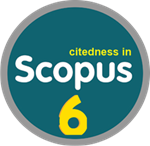The Importance of Trust and Information Technology on Individual Performance
Abstrak
Technology has made Motor Vehicle Tax services more efficient and effective. However, one of the weaknesses is that the communication network is still limited or often disrupted. This study aims to prove the influence of trust and information system technology on individual performance at the Samsat office in East Java Province. This study uses primary data sourced from the answers of the Samsat Joint Office employees who are directly related to the Motor Vehicle Tax payment information system, which is as many as ninety-four people. This study uses multiple linear regression analysis with independent variables of trust and information system technology, while individual performance is the dependent variable. Based on the results of multiple linear regression analysis, it can be concluded that trust and information system technology influence individual performance. These results prove that the individual performance of employees in the Samsat office increases if they already trust and understand the technology used. The implication is that the Samsat office must always strive for technology and motor vehicle tax application features that can satisfy its users
##plugins.generic.usageStats.downloads##
Referensi
Abdillah, W., & Saepullah, A. (2018). Model Technology to Performance Chain (TPC) in Implementing Accrual-Based Sistem Informasi Manajemen Daerah (SIMDA) Finance: Empirical Evidence from Local Government of Indonesia. Jurnal Dinamika Manajemen (JDM), 9(1), 56-68. doi:10.15294/jdm.v9i1.14652
Akbar, N., Ratnawati, V., & Novita, V. (2010). Pengaruh Pengetahuan Teknologi Informasi, Pemanfaatan Teknologi Informasi, dan Faktor Kesesuaian Tugas-Teknologi Terhadap Kinerja Akuntan Internal. Jurnal Ekonomi, 18(2), 79-91. doi:http://dx.doi.org/10.31258/je.18.02.p.%25p
Astika, I. B., & Dwirandra, A. (2020, November). Information Technology Duty, Satisfaction and AIS Effectiveness Moderate Effect of Benefits of Informs Technology on Employee Performance. International Research Journal of Management, IT & Social Sciences, 7(6), 9-20. doi:https://doi.org/10.21744/irjmis.v7n6.996
Badubi, R. M. (2017, August). Theories of Motivation and Their Application in Organizations: A Risk Analysis. International Journal of Innovation and Economic Development, 3(3), 44-51. Retrieved from http://dx.doi.org/10.18775/ijied.1849-7551-7020.2015.33.2004
Chhatlani, C. K. (2012). Effective use of Information Technology in Knowledge Management. International Conference on Global Business Research. Volume: I. Retrieved from https://www.researchgate.net/publication/232275068_Effective_use_of_Information_Technology_in_Knowledge_Management
Goncalves, A., Serra, N., Serra, J., & Sousa, P. (2012). How to Use Information Technology Effectively to Achieve Business Objectives. In I. R. Association (Ed.), Computer Engineering: Concepts, Methodologies, Tools, and Applications (pp. 19-35). IGI Global. doi:http://dx.doi.org/10.4018/978-1-61350-456-7.ch102
Goodhue, D., & Thompson, R. (1995). Task-technology fit and individual performance. Mis Quarterly, 19(2), 213-236. Retrieved from https://doi.org/10.2307/249689
Hastuti, S., Suryaningrum, D. H., Susilowati, L., & Muchtolifah. (2014). Implementation of Decomposed Theory of Planned Behavior on the Adoption of E-Filling Systems Taxation Policy in Indonesia. Expert Journal of Business and Management, 2, 1-8. Retrieved from https://papers.ssrn.com/sol3/papers.cfm?abstract_id=2686868
Kumari, R. (2020, October 30). What is Information Technology? - Definition, Types, and Examples. Retrieved from AnalyticStep: https://www.analyticssteps.com/blogs/what-information-technology-definition-types-and-examples
Kusumastuti, M. C., & Iwandi, S. A. (2012). Investigasi Empat Faktor Kontingensi sebagai Variabel Moderating terhadap Partisipasi Pemakai dan Kepuasan Pemakai dalam Pengembangan Sistem Informasi. The Indonesian Accounting Review, 2(2), 139-150. Retrieved from http://dx.doi.org/10.14414/tiar.v2i02.90
Lamarco, N. (2018, October 23). Information Technology & Its Uses in Business Management. Retrieved from smallbusiness.chron.com/: https://smallbusiness.chron.com/information-technology-its-uses-business-management-51648.html
Liu, B. F., & Mehta, A. M. (2020). From the periphery and toward a centralized model for trust in government risk and disaster communication. Journal of Risk Research, 1-17. doi:https://doi.org/10.1080/13669877.2020.1773516
Nahumury, J., Utama, I. W., & & Suryaningrum, D. H. (2018). The Compliance of Motor Vehicle Taxpayers: An Experimental Research. Journal of Accounting and Strategic Finance (JASF), 1(2), 163-176. Retrieved from https://doi.org/https://doi.org/10.33005/jasf.v1i2.44
Sayudha, V. B. (2020). Utilization and Suitability of The Information Technology Task Against The Performance of Semarang Tax Office. Economic and Accounting Journal, 3(3), 195-202. Retrieved from http://openjournal.unpam.ac.id/index.php/EAJ/article/view/5477
Sugiyono. (2019). Metode Penelitian Kuantitatif, Kualitatif, dan R&D. Bandung: Alfabeta.
Suryani, W. D., & Sumiyana, S. (2014). Task-Technology Fit And Person-Job Fit: A Beauty Contest to Improve the Success of Information Systems. Journal of Indonesian Economy and Business, 29(2), 99-117. Retrieved from https://doi.org/10.22146/jieb.6203
Suryaningrum, D. H. (2012). Assessing Individual Performance on Information Technology Adoption: A New Model. Global Journal of Business Research, 6(4), 111-125. Retrieved from https://papers.ssrn.com/sol3/papers.cfm?abstract_id=2146065
Syam BZ, F. (1999). Dampak Kompleksitas Teknologi Informasi Bagi Strategi dan Kelangsungan Bisnis. Jurnal Akuntansi dan Auditing Indonesia, 3(1), 77-89.
Triandis, H. C. (1977). . Interpersonal behavior. Monterey, CA: Brooks/Cole.
Ulumuddin, I. (2020, November 31). Pemprov Jatim Kembali Hapus Denda Pajak Kendaraan Bermotor. Retrieved from iNews.id: https://jatim.inews.id/berita/pemprov-jatim-kembali-hapus-denda-pajak-kendaraan-bermotor
Yunianti, L., Putri, N., Sudibyo, Y., & & Rafinda, A. (2019). The Influence of Awareness, Moral Obligations, Tax Access, Service Quality and Tax Sanctions on Taxpayer compliance in Paying Motor Vehicle Tax. Journal of Accounting and Strategic Finance (JASF), 2(1), 1-13. Retrieved from https://doi.org/https://doi.org/10.33005/jasf.v2i1.20
##submission.copyrightStatement##
##submission.license.cc.by4.footer##














